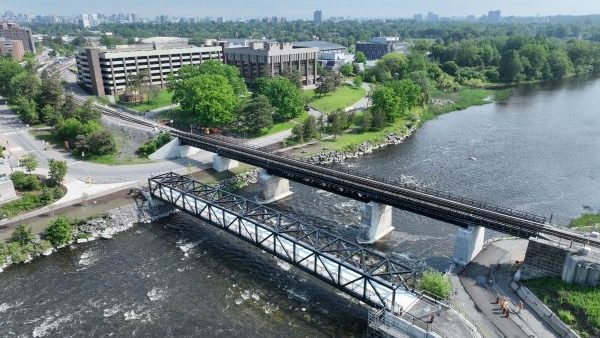Classes at a West Virginia school will relocate over toxic groundwater fears
Posted Jun 12, 2024 12:44:17 PM.
Last Updated Jun 12, 2024 02:25:12 PM.
Classes at a small West Virginia school will be relocated this fall, two years after the town’s contaminated groundwater was added to a national cleanup priority list.
Wetzel County Schools Superintendent Cassandra R. Porter announced the move Tuesday for students, faculty and staff at Paden City High School. They will relocate to existing schools in nearby New Martinsville when classes resume in August.
“A safe learning environment for our students is fundamental and imperative,” Porter said in a letter to faculty and staff.
In March 2022, federal environmental officials placed Paden City’s groundwater on the list of Superfund cleanup sites. Untreated groundwater contained the solvent tetrachloroethylene at levels higher than the federally allowed limit.
Tetrachloroethylene is widely used by dry cleaners. The U.S. Environmental Protection Agency said the contaminated area is around the site of a dry cleaner that closed more than two decades ago in the Ohio River town of about 2,500 residents.
According to the EPA, tetrachloroethylene is a likely carcinogen and can harm the nervous system, liver, kidneys and reproductive system.
Sites are added to the Superfund priority list when contamination poses significant human health and environmental risks. They are then eligible to receive federal funding for long-term cleanup projects.
Students in grades 7 and 8 will relocate to New Martinsville School, and those in grades 9 through 12 will attend Magnolia High School, Porter said. She called the relocation temporary, and her letter didn’t indicate how long it would last.
“Having an environmental hazard like an EPA Superfund site underneath PCHS leaves little room for error of half-measures,” said Porter, who took over as superintendent last July. “Decisive action is needed.
“A wait-and-see approach with a tetrachloroethylene plume underneath a school is unreasonable and potentially dangerous. A lack of immediate action could lead to unmanageable and regrettable losses. My commitment to providing our students with a safe and high-quality education, not to mention common sense, motivates me to act now.”
Tetrachloroethylene first was detected in Paden City’s drinking water source in 2010, according to a U.S. Department of Health and Human Services report released in January. The report detailed ongoing investigations of various sites in the city. It did not address how the underground area of contaminated groundwater and soil will be cleaned up.
Paden City debuted a new water treatment plant in May 2020, but a pump valve malfunctioned in 2023, causing the release of tetrachloroethylene in the local water system. A “do not consume” notice was put in place for a month for customers of Paden City Water Works. After the leak was fixed, the water system was flushed and water samples tested until results showed the water was safe to use again.
Paden City is about 100 miles (161 kilometers) southwest of Pittsburgh.
John Raby, The Associated Press








